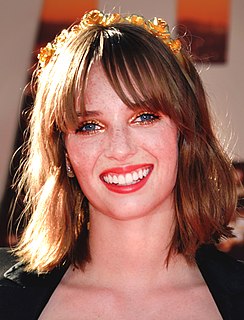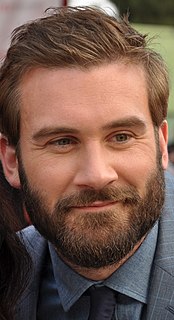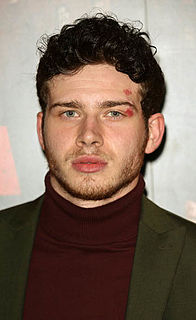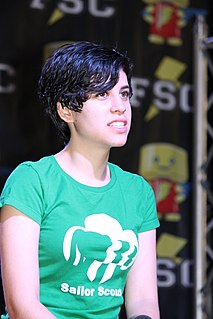A Quote by Geena Davis
We're showing kids a world that is very scantily populated with women and female characters. They should see female characters taking up half the planet, which we do.
Related Quotes
I would say any film can be called feminist that has female characters who have agency in their life, that are in charge of their fate or do important things or take up half the space. I would consider a film feminist, I don't care what it's about, but if the cast was gender balanced, where it would be just as likely that the boss or the best friend or whoever was female. It's really as simple as showing women being in charge of their destiny and giving female characters a voice.
I think the superhero platform gives the female character, you know, a relate-ability for the male audience as well. So, I think that's why people are kinda gravitating towards female super hero characters, and also female characters in general as big parts of the film. So, that's great for us, female actors who want to do roles like that, which is really great.
My whole theory about why I couldn’t find any creators who realized they were leaving out female characters is because they were raised on the same ratio. I just heard someone the other day call it either ‘smurfing’ a movie, which is when there’s one female character, or ‘minioning’ a movie, which is when there’s no female characters.
To me, feminism in literature deals with the female characters being in some way central to the thematic concerns of the book, or that they are agents of change to some degree. In other words, the lens is focused deeply and intensely on the female characters and doesn't waver, which allows for a glimpse into the rich inner lives of the characters.
The fictitious worlds created for kids are nearly bereft of female presence. It's sending a very clear message from the beginning that women and girls do not have half of the adventures, that they're not as important. We're teaching kids that girls and women don't take up half the space in the world.
Women are always murdered and maimed, and they’re never given their rightful place as lead characters! And I think [creator Michael Hirst] has just written what should have been written a long time ago. There shouldn’t be anything that different about Vikings, but there is, because there’ve just been so many shows that have not stepped up to the plate and given female actors and female characters equal footing.
I'm very conditioned by my surroundings, by the influences of social media, by the television I watch. And I always found, growing up, that even inspiring female characters or complex female characters in television and film, I often found that their complexity was actually just another facet of their sexuality.
The shows which have strong female characters are long overdue. I think there should be more and I am glad to see that there are more. There are fantastic female and diverse actors all around the world. I am glad to see that they are getting more recognition and being pushed into light more and more.





























